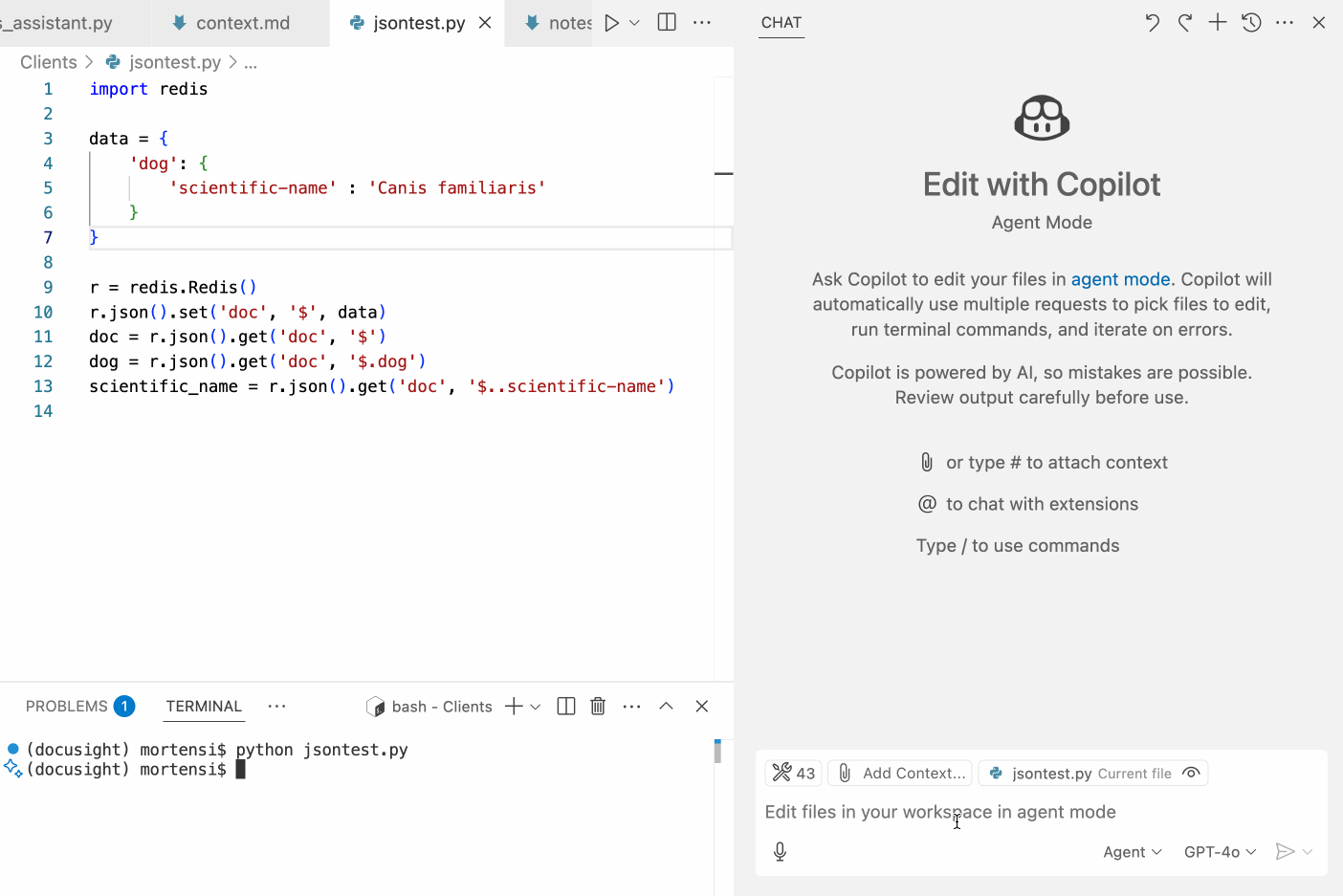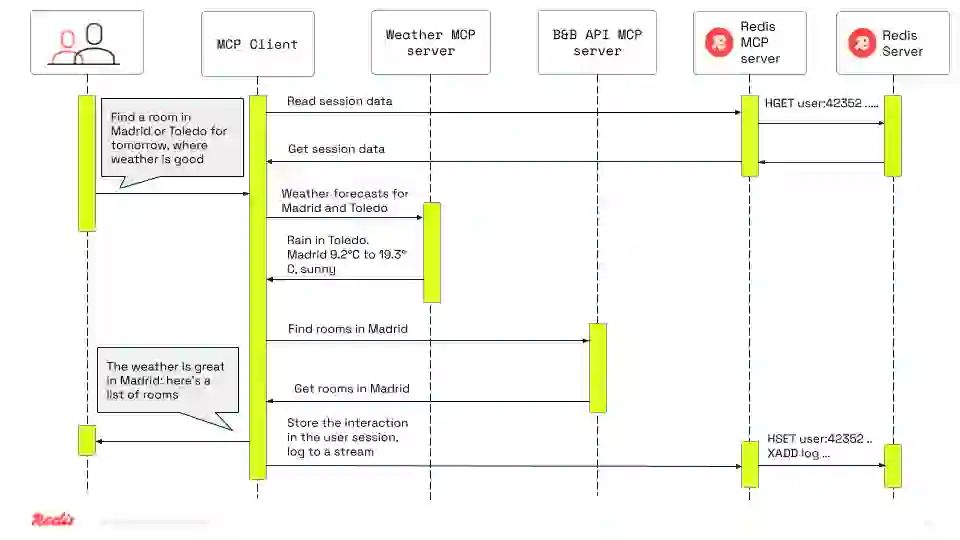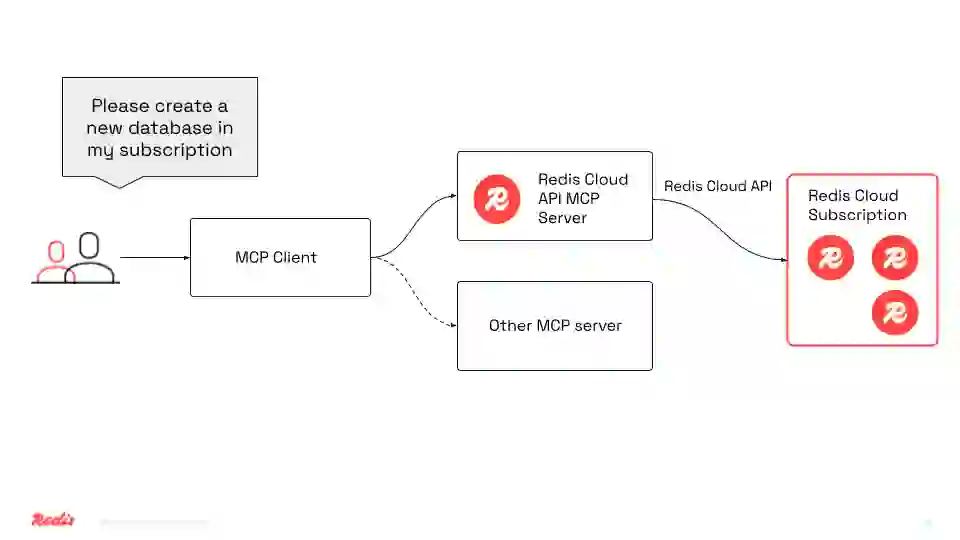Model Context Protocol (MCP) is a standard developed by Anthropic that lets AI agentic apps use external data and tools. Think of it like a universal adapter that helps AI go beyond its training by tapping into real-time info and capabilities, like pulling weather forecasts, live stock prices or checking your calendar.
MCP is built to solve common pain points around how AI accesses and works with information.
MCP integrations are available on Claude Desktop and extended to platforms like GitHub Copilot, Cursor, Augment, the OpenAI Agents SDK, and more.
That’s why we’re excited to introduce Redis’ MCP servers through two open-source projects: mcp-redis and mcp-redis-cloud.
The mcp-redis project is a natural language interface designed to manage and search data in Redis. It integrates with MCP clients, enabling AI-driven workflows to interact with structured and unstructured data in Redis. The MCP Server makes it easy to work with everything Redis supports: strings, hashes, JSON documents, lists, sets, sorted sets, vector embeddings, etc. The server also makes available server management tools to perform a Redis database health check. Using the Redis MCP Server, the MCP client app can resort to Redis for popular use cases such as session management, conversation history, real-time caching, rate limiting, recommendations, or semantic search for retrieval augmented generation (RAG).
You can integrate this MCP Server in a few clicks using registries like the popular Smithery platform, using the pre-built Docker image made available on Docker Hub. You can also build your Docker image or clone the project and run the server locally.
MCP works with the tools you already use. IDEs like VS Code with GitHub Copilot, Cursor, and Claude Desktop support it out of the box—so you can talk to your Redis server no matter where it’s running: local, Docker, or Redis Cloud. Just connect the server you want and you’re ready to go.

Integrating natural language processing into your IDE opens up new possibilities to boost user experience when working with app data. But MCP is much more. You can build powerful agentic apps in SDKs such as the OpenAI Agents SDK. The SDK supports MCP so that you can provide your MCP tools to agents.
Building complex apps is much easier by plugging in the desired functionalities exposed by the many existing MCP servers. You can find an example in the mcp-redis repository. Provide as many MCP servers as you’d like, customize the agent’s instructions, and you’re ready to interact with it.

The mcp-redis-cloud gives your AI agents direct access to your Redis Cloud subscription, so they can manage it without extra tooling. With the Redis Cloud API MCP server, you can use tools like Claude Desktop, Cursor, or any MCP-compatible IDE to manage your Redis Cloud account using natural language. For example:
This MCP server exposes the Redis Cloud REST API so you can bridge natural language instructions with programmatic Redis Cloud subscription management.

If you want the ability to spin up databases for testing, manage your subscription, learn about the metrics of interest, or overload an existing app with the ability to create databases on demand, take a look at this server.
From startups to enterprises, teams are looking at MCP to make their AI apps smarter:
MCP standardizes how tools bring in relevant context for GenAI, making it simpler to add new components and manage context effectively.
Built on Redis’ speed and flexibility, MCP offers a solid base for creating AI apps that are more capable, responsive, and context-aware. Try these MCP servers in your AI agentic app or integrate them into your development tools today; you’ll find instructions in the repositories. You can explore these projects, contribute to their development, and join us in shaping the future of AI agentic apps with Redis.